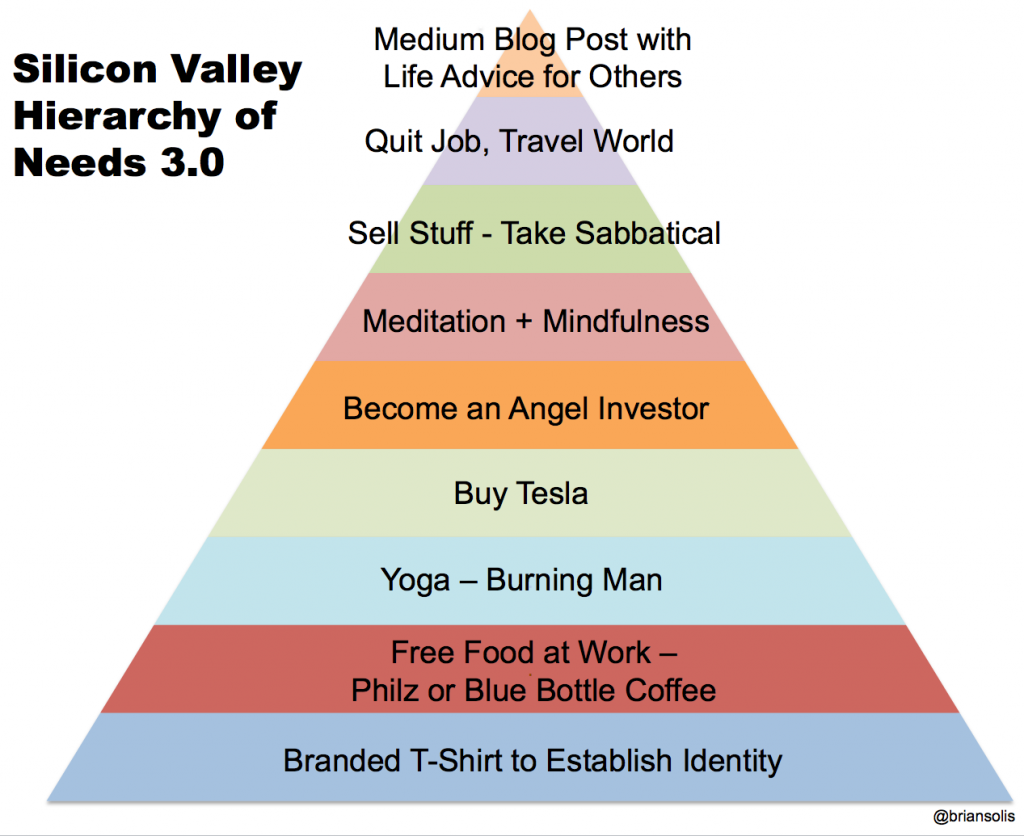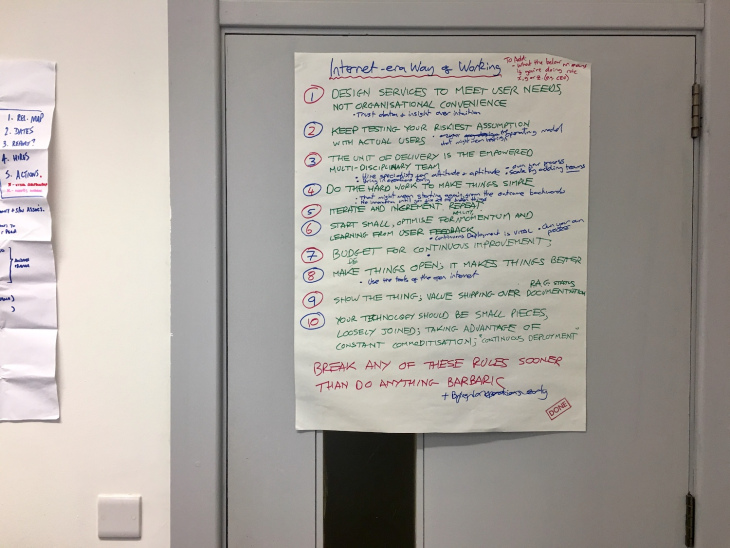@PHP_CEO is a new corporate humor goldmine on Twitter. It’s very much like I am a developer, but, you know, from the CEO perspective.
Some of those tweets are nothing short of brilliant!
@PHP_CEO is a new corporate humor goldmine on Twitter. It’s very much like I am a developer, but, you know, from the CEO perspective.
Some of those tweets are nothing short of brilliant!

While reading this not funny post, I came across the Silicon Valley Hierarchy of Needs, which I think is hilarious. It’s a nice take on the Maslow’s hierarchy of needs, of course.

“Internet-era ways of working” is an excellent collection of points (somewhere between the design principles and TODO list items) on how to organize the work / business / project in the modern age. Some of these are obvious and well-known, others are a bit less so. Read the whole article for more details, but here are the main items:
I’ve been thinking a lot about this subject over the last few years. Some of the items above I practice almost religiously (7, 8, 9, 10). Some I think I do, but I’m not sure (2, 3, 4, 6, 11, 12). Some I’m still figuring out (1, 5, 11, 12). But overall, I think the article is insightful as much of this, even the most obvious parts, are quite difficult to put in words.
Itamar Gilad, of ex-Google fame, has an excellent post – The Tool that Will Help You Choose Better Product Ideas – which describes a process for selecting better product ideas and implementing them with confidence, minimizing the risks and maximizing the team efficiency.
Unlike many other similar posts, this one is very practical, detailed, and relies on iterations, feedback, communications, and ties together different roles within the company or the team.
I consider Tim O’Reilly to be one of the smartest people around. Whether you agree with that or not, or whether you worry about his education agenda being pushed too much, the “Networks and the Next Economy” slides are still worth the time. These are both current and futuristic at the same time.